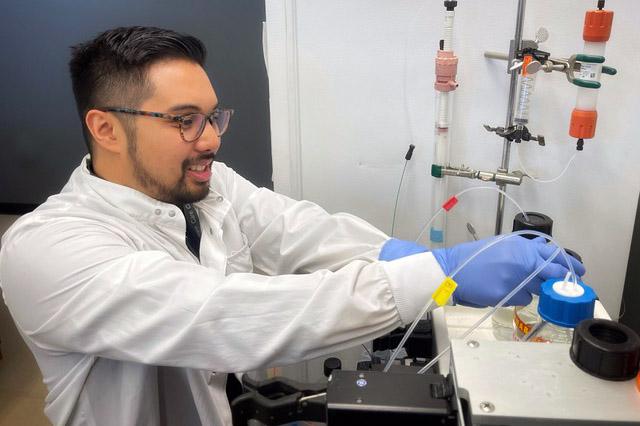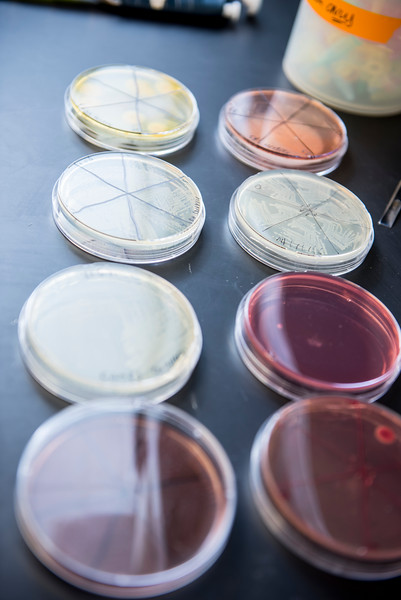
Signaling proteins shown to play key role in TB biology
Reposted from UW Medicine Newsroom, Signaling proteins shown to play key role in TB biology | Newsroom (uw.edu) Photo by Michael McCarthy.
“Our findings address a fundamental question about biology but because these are very ‘drugable’ proteins, the findings may help find drugs that can treat the permanent pandemic of TB.” said Christoph Grundner, principal investigator at the Seattle Children’s Research Institute’s Center for Global Infectious Disease Research and an associate professor of pediatrics at the UW School of Medicine, who oversaw the research project.
A set of 10 signaling proteins found in the microbe that causes tuberculosis [TB], play a far larger role in regulating the bacterium’s growth, development and behavior than previously thought, according to recent research. The study was led by UW School of Medicine and Seattle Children's researchers..
In their study, Grundner and his colleagues [Andrew Frando, a graduate student, and Vishant Boradia, a postdoctoral fellow] looked at a group of signaling proteins called kinases that regulate cell behavior. Kinases signal by attaching energy-rich molecules, called phosphates, to other proteins, to regulate the proteins' activity, a process called phosphosignalling.
Read the UW Medicine Newsroom article.






